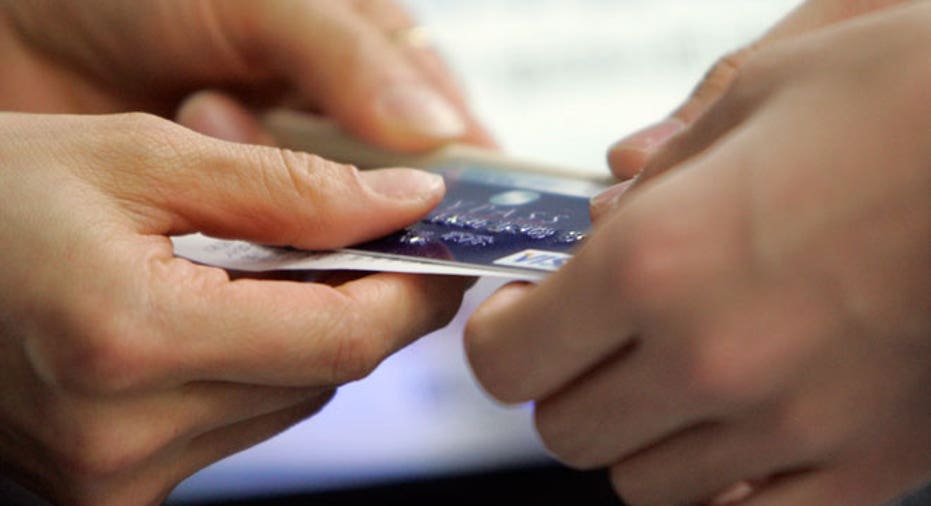Credit Card Fraud: It can Happen to You

This wasn't supposed to happen to me.
You see, as a financial writer, when I cover a story about credit card fraud, it's supposed to be in the third person - about what happened to some unfortunate victim, or about how laws help protect consumers, etc. It's not supposed to be in the first person. I'm not supposed to be the victim.
And yet there I was, a couple months ago, scratching my head and trying to figure out what this charge for $1,196.62 on my one of my credit cards could be.
Now, that $1,196.62 caught my eye for three reasons. First, I am notoriously cheap, so when I spend a thousand dollars, I tend to remember it. Second, at the time I was using this particular credit card as my back-up, so I was a little surprised to see any balance owed. Third, the description line for the transaction read “Award Headquarters.” I had no memory of contacting any sort of “Award Headquarters.” Come to think of it, being charged over a thousand dollars doesn't seem like much of an award.
There was also a telephone number for Award Headquarters on that transaction line, so I called the number. They said they had no record of a transaction in my name.
After checking that the credit card was still safely in my wallet (it was), I called the credit card company. After wending my way through the phone tree and punching in my credit card number plus the last four digits of my Social Security number, I got to speak with a representative. She promptly asked for my credit card number. Then the last four digits of my Social. Then my mother's maiden name. Once I had satisfied her with my credentials, I asked what her name was.
“Carmen.” Just Carmen. They won't give last names, which is a little disconcerting. After all, she not only knew my first and last names, but I had also supplied my credit card number (twice), part of my Social Security number (twice), and my mother's maiden name. Still, all I got was “Carmen.” It dawned on me that this was going to be a decidedly one-sided relationship, and those are never very satisfying.
Seriously though, I have never done anything professionally that I was unwilling to put my name on. Any organization that wants to improve its customer service could start by insisting that its representatives use their full, real names. It's amazing how accountability improves performance.
Anyhow, I explained to the enigmatic Carmen what had happened. She said that all she could do was report it, but that she couldn't guarantee they would take the charge off of my statement. I started to smell a rat. I'm not a credit card expert, but I deal with the topic enough to know that there are better consumer protections than that. Still, I could get no further with Carmen, so I hung up. I double-checked online, and confirmed that consumer liability is limited to $50 for unauthorized transactions.
I then did one smart, and one dumb thing. The smart thing was that I reported the problem to the credit card company in writing. I'll get to the dumb thing in a moment.
A couple of days later, I got a telephone call. A very efficient woman from the credit card company said she was responding to my report of a suspicious transaction. I asked her, just out of curiosity, whether she was responding to my earlier phone call, or to my letter. She said it was my letter. Apparently, the U.S. Postal Service can get a letter 80 miles faster than Carmen can report a call from one department to another.
Anyway, about that dumb thing - the woman calling about my letter pointed out that we should immediately cancel my card and replace it with another, to prevent any further abuse of the compromised number. She was right, of course - the dumb thing was that I should have thought of that myself in the first place.
From there, everything went smoothly. The suspicious charge was wiped off of my statement, and the credit card company put me in touch with their fraud investigation service to look into what had happened. The last I heard, they were putting the onus on the merchant to justify the charge.
So, here is a summary of the takeaways from this experience:
- Regularly check your credit card transactions line-by-line for suspicious activity.
- Immediately report any suspicious activity.
- If you have reason to believe your credit card number has been compromised, immediately cancel that card.
- Follow any such report with a written account of the situation.
- Know your rights - once you've reported an unauthorized transaction, your liability should be limited to $50.
As much as this was a useful experience for a financial writer to go through, I'd prefer that it had not happened to me. Then again, without it, I would never have gotten to meet Carmen.
The original article can be found at FiveCentNickel.com:Credit Card Fraud: It Can Happen to You



















